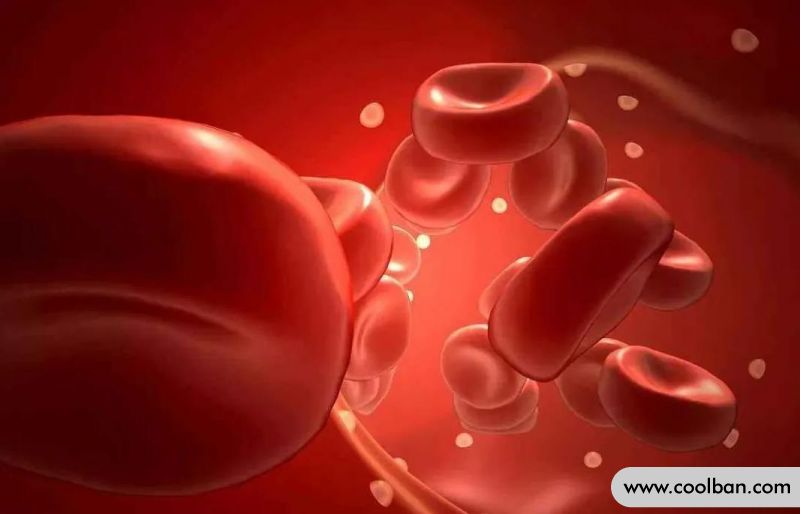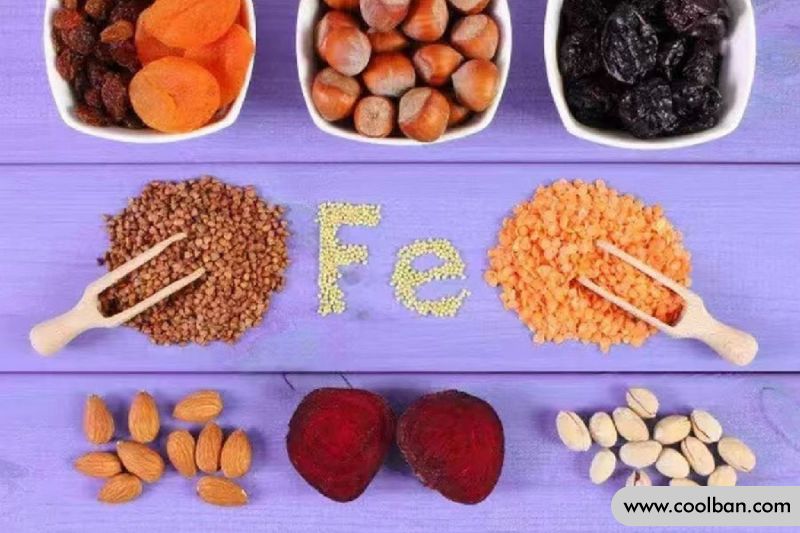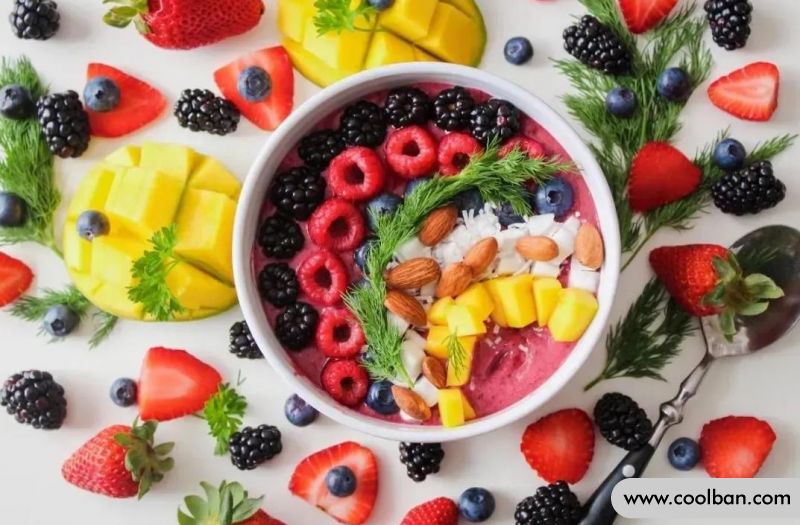Anemia baby how to do? How to prevent anemia in babies?
2022-04-15
For most new parents who have just been promoted to parents, the next parenting work is particularly important. In fact, many people do not know that babies may also be anemic. So, what should the baby eat for blood supplementation? Let's find out together.

What to do with the baby's anemia
Method 1: Iron-containing foods, iron-supplemented baby formula, iron-containing rice flakes, or iron-containing vitamin drops, etc. At the same time, it is necessary to supplement foods rich in vitamin C, such as tomato juice, vegetable puree, etc., to improve iron absorption. In addition, when your baby starts to eat solid foods, also feed more iron-rich foods, such as egg yolks, porridge, vegetable porridge, etc., but avoid sugar, because sugar can hinder the absorption of iron.
Method 2: Pay attention to observe the baby's physical condition at any time, and check the baby's hemoglobin composition if necessary, because mild baby anemia cannot be seen on the outside. If the baby's hemoglobin is too low, it means that he has anemia, and it is necessary to supplement iron in time and eat more foods with high iron content.
Method 3: Regarding iron-fortified diets, term infants start at 4-6 months (no later than 6 months), and preterm and low:weight infants start at 3 months. The easiest way to do this is to add ferrous sulfate to formula or solid food, and for breastfed babies, add iron-containing cereals 1-2 times a day. Ferrous sulfate drops can be used alternately. The dosage of pure iron should not exceed 1mg/kg/day (2.5% FeSO40.2ml/kg/day) for term infants and 2mg/kg/day for premature infants. The maximum total daily dose is 15mg, and it is used at home without ultrasound for up to 1 month to avoid iron poisoning.
Method 4: After 6 months of artificial feeding, if feeding iron-free milk, the total amount should not exceed 750ml, otherwise the intake of iron-containing diet will be squeezed out.
Method 5: For children and adults, it is best to add 13-16 mg of iron per kilogram of flour. In rural areas of our country, grains and starch are the main diets. In some places, hookworm disease is prevalent and must be paid attention to. At the same time, be careful to eat as much meat as possible, because even if you add iron to cereals, its absorption is not as good as meat.

What is good for baby to nourish blood
One-year-old babies are prone to iron-deficiency anemia. When 6 months old, supplementary food can be added to nourish blood. Most babies' anemia is caused by iron deficiency, and iron is the main raw material for hematopoiesis. To prevent iron deficiency anemia, the following diet should be taken to provide iron and blood for your baby.
Iron content in food is not enough for iron supplementation. If the absorption rate is low, iron supplementation will not work very well, even if the iron content of the food is high.
Iron in food exists in two forms: readily absorbed heme iron and poorly absorbed inorganic iron. The iron in animal liver, blood, poultry, fish, egg yolk and other animal foods is heme iron, which is easy to absorb and has a good effect of iron supplementation; iron in vegetables and iron in milk belong to inorganic iron, which is less absorbed and supplemented with iron. The effect is not the best.
In addition to supplementing foods with high iron content, giving your baby more fruits rich in vitamin C is particularly beneficial to improve the absorption rate of iron. Kiwi, citrus, green leafy vegetables, fresh dates, cauliflower, etc. are rich in vitamin C.
You can choose baby vegetable powder and liver powder, which can better promote the absorption of iron. Adding liver powder and vegetable powder to rice noodles or noodles is not only nutritious, but also delicious.

Baby anemia, parents can deal with this
Under normal circumstances, as long as a reasonable diet, there is generally no baby anemia. Once the baby develops anemia, the degree of anemia should be checked first, and then iron supplementation should be carried out according to the doctor's advice.
Mild iron-deficiency anemia can be supplemented by food adjustment. In the case of severe anemia, iron supplementation is required, and regular inspections are made to see if it has been adjusted.
Prevention of anemia in babies, 4 simple solutions
Method 1: Try to exclusively breastfeed your baby before 6 months. The nutrition of breast milk is more easily absorbed by the baby, and it is also rich in lactoferrin, which helps to prevent anemia in the baby.
Method 2: Supplement iron-rich complementary foods in a timely manner. Generally, after the baby is 6 months old, the "iron stock" in the body has almost been depleted, and iron-rich complementary foods should be supplemented in time. It should be emphasized that many parents believe that red dates supplement iron and blood. In fact, the iron in plant foods such as red dates is non-heme iron, which is poorly absorbed. Good sources of iron for babies are mainly animal foods such as liver, whole blood and red meat. In addition, iron-fortified infant foods, such as rice noodles, are also good choices.
Method 3: Supplement foods rich in vitamin C to promote iron absorption. While supplementing iron, it is also necessary to properly supplement foods rich in vitamin C, such as fresh vegetables and fruits, to help promote iron absorption.
Method 4: Do child care regularly. Many problems are found in the child health check. Pay attention to taking the baby to the child health care regularly. If the baby is found to be anemic, he should take medicine under the guidance of the doctor.

What to do with the baby's anemia
Method 1: Iron-containing foods, iron-supplemented baby formula, iron-containing rice flakes, or iron-containing vitamin drops, etc. At the same time, it is necessary to supplement foods rich in vitamin C, such as tomato juice, vegetable puree, etc., to improve iron absorption. In addition, when your baby starts to eat solid foods, also feed more iron-rich foods, such as egg yolks, porridge, vegetable porridge, etc., but avoid sugar, because sugar can hinder the absorption of iron.
Method 2: Pay attention to observe the baby's physical condition at any time, and check the baby's hemoglobin composition if necessary, because mild baby anemia cannot be seen on the outside. If the baby's hemoglobin is too low, it means that he has anemia, and it is necessary to supplement iron in time and eat more foods with high iron content.
Method 3: Regarding iron-fortified diets, term infants start at 4-6 months (no later than 6 months), and preterm and low:weight infants start at 3 months. The easiest way to do this is to add ferrous sulfate to formula or solid food, and for breastfed babies, add iron-containing cereals 1-2 times a day. Ferrous sulfate drops can be used alternately. The dosage of pure iron should not exceed 1mg/kg/day (2.5% FeSO40.2ml/kg/day) for term infants and 2mg/kg/day for premature infants. The maximum total daily dose is 15mg, and it is used at home without ultrasound for up to 1 month to avoid iron poisoning.
Method 4: After 6 months of artificial feeding, if feeding iron-free milk, the total amount should not exceed 750ml, otherwise the intake of iron-containing diet will be squeezed out.
Method 5: For children and adults, it is best to add 13-16 mg of iron per kilogram of flour. In rural areas of our country, grains and starch are the main diets. In some places, hookworm disease is prevalent and must be paid attention to. At the same time, be careful to eat as much meat as possible, because even if you add iron to cereals, its absorption is not as good as meat.

What is good for baby to nourish blood
One-year-old babies are prone to iron-deficiency anemia. When 6 months old, supplementary food can be added to nourish blood. Most babies' anemia is caused by iron deficiency, and iron is the main raw material for hematopoiesis. To prevent iron deficiency anemia, the following diet should be taken to provide iron and blood for your baby.
Iron content in food is not enough for iron supplementation. If the absorption rate is low, iron supplementation will not work very well, even if the iron content of the food is high.
Iron in food exists in two forms: readily absorbed heme iron and poorly absorbed inorganic iron. The iron in animal liver, blood, poultry, fish, egg yolk and other animal foods is heme iron, which is easy to absorb and has a good effect of iron supplementation; iron in vegetables and iron in milk belong to inorganic iron, which is less absorbed and supplemented with iron. The effect is not the best.
In addition to supplementing foods with high iron content, giving your baby more fruits rich in vitamin C is particularly beneficial to improve the absorption rate of iron. Kiwi, citrus, green leafy vegetables, fresh dates, cauliflower, etc. are rich in vitamin C.
You can choose baby vegetable powder and liver powder, which can better promote the absorption of iron. Adding liver powder and vegetable powder to rice noodles or noodles is not only nutritious, but also delicious.

Baby anemia, parents can deal with this
Under normal circumstances, as long as a reasonable diet, there is generally no baby anemia. Once the baby develops anemia, the degree of anemia should be checked first, and then iron supplementation should be carried out according to the doctor's advice.
Mild iron-deficiency anemia can be supplemented by food adjustment. In the case of severe anemia, iron supplementation is required, and regular inspections are made to see if it has been adjusted.
Prevention of anemia in babies, 4 simple solutions
Method 1: Try to exclusively breastfeed your baby before 6 months. The nutrition of breast milk is more easily absorbed by the baby, and it is also rich in lactoferrin, which helps to prevent anemia in the baby.
Method 2: Supplement iron-rich complementary foods in a timely manner. Generally, after the baby is 6 months old, the "iron stock" in the body has almost been depleted, and iron-rich complementary foods should be supplemented in time. It should be emphasized that many parents believe that red dates supplement iron and blood. In fact, the iron in plant foods such as red dates is non-heme iron, which is poorly absorbed. Good sources of iron for babies are mainly animal foods such as liver, whole blood and red meat. In addition, iron-fortified infant foods, such as rice noodles, are also good choices.
Method 3: Supplement foods rich in vitamin C to promote iron absorption. While supplementing iron, it is also necessary to properly supplement foods rich in vitamin C, such as fresh vegetables and fruits, to help promote iron absorption.
Method 4: Do child care regularly. Many problems are found in the child health check. Pay attention to taking the baby to the child health care regularly. If the baby is found to be anemic, he should take medicine under the guidance of the doctor.
